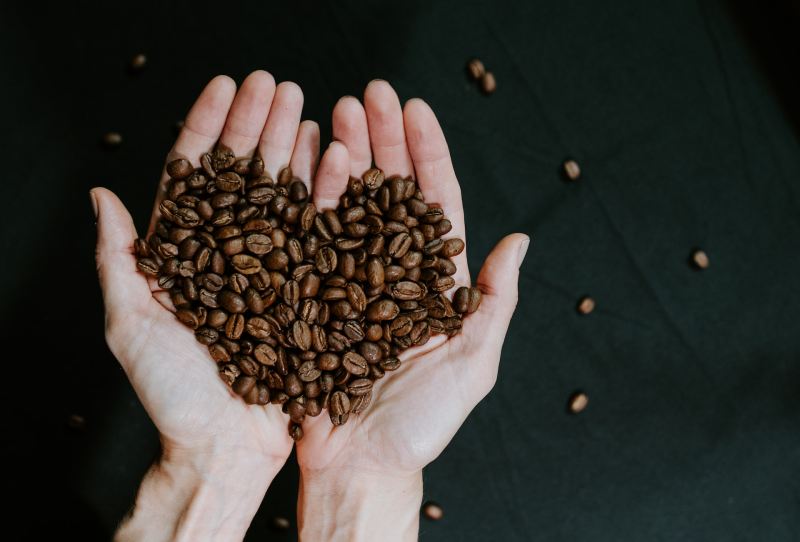If you’re a javaphile, you probably go through coffee beans reasonably fast. I drink at least two to three cups per day, so as you can expect, I quickly run through coffee beans in my house. However, since I travel frequently, I’ve often wondered if my coffee beans would still be suitable for brewing once I return home from vacation.
The phrase “freshly brewed coffee” suggests the beans are fresh, but what exactly makes a fresh bean? As you probably can speculate, coffee beans don’t stay fresh forever. If you’ve also wondered, “Do coffee beans go bad?” this guide is for you.
Do coffee beans go bad?

Yes, coffee beans can go bad. Since coffee beans are a byproduct of a plant, it only makes sense that they will eventually go bad. As we explore “Do coffee beans go bad?” let’s first acknowledge that this question likely refers to roasted coffee beans. Most consumers purchase roasted coffee beans packaged in bags from their favorite coffee brand or coffee roastery. Unless you’re involved in coffee sourcing or growing, you’re likely not encountering green coffee beans (coffee beans before undergoing the roasting process).
Now that we’ve acknowledged that coffee beans can go bad, what makes them go bad? Several factors at play ultimately spoil coffee beans. The most apparent reason coffee beans go bad is their contact with air. When coffee beans are exposed to air for prolonged periods, the oxidation process causes the natural oils in coffee to lose their freshness. This factor is why storing your coffee beans properly is so important to prolong their freshness.
Although exposure to oxygen is the primary reason your coffee beans go bad, other factors come into play, too. Exposure to light and/or high temperatures can also accelerate the oxidation process, as can moisture. Grinding your coffee beans too early (before you’re ready to use them) can also increase the surface area, allowing more of the coffee to be exposed to oxygen.
How long do coffee beans stay fresh?

How long coffee beans stay fresh depends on several factors that are difficult to measure, such as how much air the beans have been exposed to. Also, it depends on whether the bag has been opened yet. Unopened bags of coffee stay fresh for six months to a year if stored in a cool, dry, and dark place. Many coffee roasteries will write a roast date directly on the package so you know exactly when the coffee was roasted. Store-bought brands will have an expiration date listed on the package.
Once opened, whole coffee beans should be used within a few weeks to a month at most. Pre-ground coffee won’t last as long and should be used within a week after opening.
Maximizing coffee bean freshness

Coffee beans can and will go bad, but that doesn’t mean you can’t extend their shelf life by making a few small changes to your coffee-buying and coffee-making habits. As Gareth Kemble of Carvetti Coffee Roasters explained, you can maximize the freshness of your coffee beans in several ways.
Buy beans close to the roast date
As Kemble explains in his informational YouTube video, coffee beans immediately lose freshness after roasting. For this reason, he recommends buying beans as close to the roast date as possible. This means you’ll probably want to avoid buying coffee beans ahead of time or purchasing in bulk.
Purchasing only what you need and will use immediately means you’ll always have fresh coffee beans for the best possible cup of joe. That’s why many coffee enthusiasts love coffee subscription services from roasters, which regularly deliver freshly roasted coffee beans to your door.
Wait to grind until ready to brew
It can be tempting to grind your coffee beans ahead of time to save time every morning. However, Kemble recommends grinding only what you intend to use each time. This is because ground coffee has a larger surface area, exposing more coffee to oxygen than when left in whole bean form. Grinding coffee beans releases aromas and oils, which fade when exposed to air. Waiting to grind your beans until you’re ready to use them will yield a better-tasting cup of coffee. That’s why I love coffee makers with built-in coffee grinders that only grind the beans right before brewing.
Store in an airtight container
Before you open the cabinet, think twice about leaving your coffee beans in an unsealed bag. Unsealed bags of coffee allow air to get into your unused coffee beans and can cause them to spoil quickly. Airtight containers such as the Planetary Design Airscape are explicitly made for storing coffee beans and keeping out as much air as possible. I think this coffee container’s double-seal design is a great idea (which also works exceptionally well). Plus, it saves so much countertop mess from opening and closing those pesky, nonresealable coffee bags.




